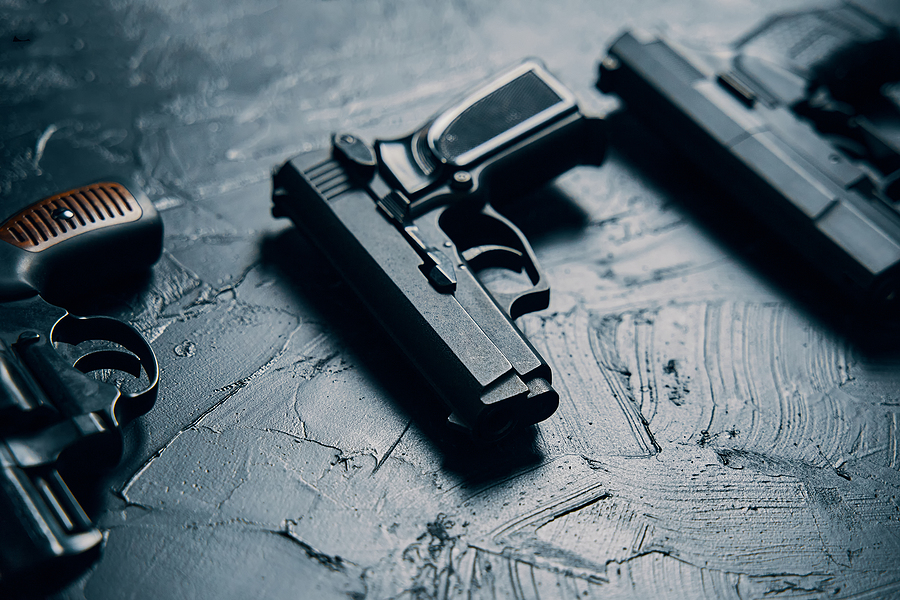There are many laws regarding the transportation of firearms both in Texas and across the United States. It is important to keep up to date on these laws because illegally transporting firearms can result in steep fines and jail time. If you are considering transporting a weapon, you should reach out to a qualified Frisco criminal defense attorney.

How Do You Transport Firearms in Texas?
Compared to other states, Texas has relatively relaxed laws regarding the transportation of firearms. Under Texas state law, you can legally carry a handgun in your motor vehicle without a Handgun License to Carry or any other permit, as long as the following requirements are met:
- The handgun must be concealed; it cannot be in plain view.
- You cannot be engaged in criminal activity (excluding Class C traffic misdemeanors).
- Federal law does not prohibit you from possessing a firearm.
- You are not a member of a criminal gang.
Unless you possess a Handgun License to Carry, you cannot carry a handgun outside of a motor vehicle unless you are direct en route between the car and your own property. This includes bringing your gun into a rest stop or gas station. It must remain concealed in your car while you are in transit.
Texas has no laws regarding the carrying of long guns (rifles or shotguns) in motor vehicles. They do not have to be concealed and can be loaded and within reach.
How Do You Transport Weapons Across State Lines?
Federal law does not restrict individuals (other than those in prohibited categories) from transporting legally acquired firearms across state lines. Under federal law, the following individuals are not allowed to possess or transport a firearm:
- Persons convicted of a crime punishable by imprisonment for more than one year;
- Persons with pending felony charges;
- Fugitives from justice;
- Persons addicted to or who used controlled substances;
- Persons who have been adjudicated as mentally defective or who have been committed to a mental institution;
- Illegal aliens or person with nonimmigrant visas;
- Persons dishonorably discharged from the U.S. armed forces;
- Persons who renounced their U.S. citizenship;
- Persons subject to a protective order and certain other domestic violence court orders; and
- Persons convicted of misdemeanor domestic violence crimes.
Even though there are no federal restrictions on transporting firearms, individuals must ensure that they are legally allowed to possess and transport the weapon in the state they are traveling from and the state they are entering. Each state and many localities have its own laws governing the ownership, possession, and transportation of firearms. Often, these laws and regulations are technical and complex. What is legal in Frisco is not necessarily legal somewhere else. It is critical to be aware of and comply with each jurisdiction’s legal requirements, or you could face criminal penalties. Ignorance of the law is not a defense; it does not matter if you were unaware of the law. You will still face criminal penalties for illegally transporting the weapon.
In general, if you have the proper license or permits, firearms can be transported legally in most states if they are unloaded, cased, and locked in the automobile trunk or otherwise inaccessible to the driver or passenger. They should not be kept in the glove box or center console. You should always carry all applicable licenses and permits for any gun that you are transporting.
How Do You Transport Firearms on Airplanes?
The Transportation Security Administration (TSA) rules govern how a person can travel with a firearm on an airplane. Under its regulations, all firearms must be checked with the airline and declared under the airline’s specific procedures. The firearm must be carried in a hard-sided container that is locked, and only the passenger may hold the key or lock combination. If the passenger is asked, they must unlock the hard container for further inspection.
All firearms, including parts (barrels, magazines, and frames) and ammunition, are prohibited from carry-on baggage. Inadvertently leaving a firearm in a carry-on bag can result in civil and criminal penalties.
In addition to the TSA rules, you must follow all local and state laws relating to the possession and transportation of firearms of both your destination and the place that you are departing from.
Your Frisco Criminal Defense Attorney
If you have questions about transporting firearms, you should reach out to a qualified Frisco attorney. Philip D. Ray can help you plan how to best move forward. Call Philip D. Ray today to schedule a consultation at 469-588-6770
